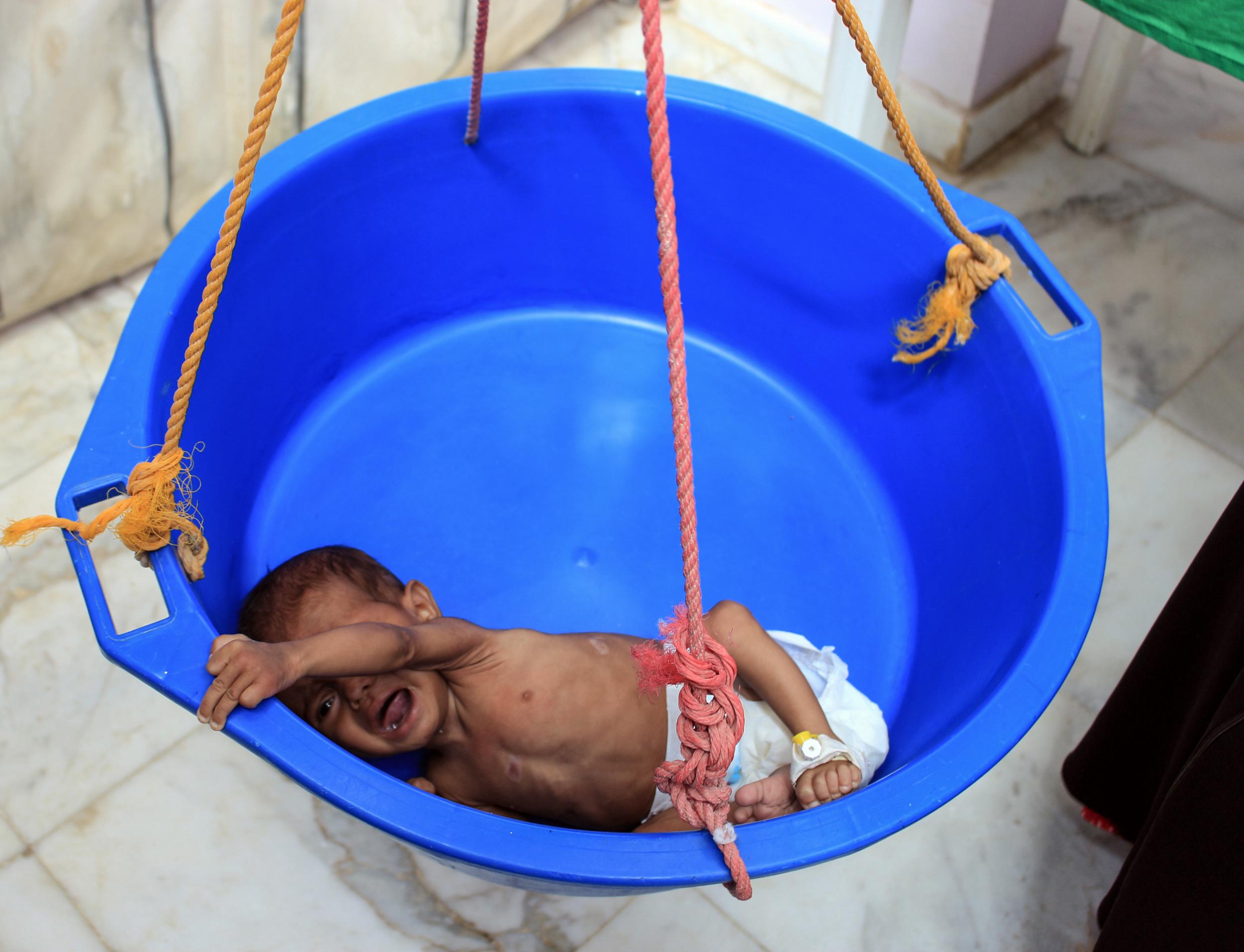Yemen conflict: UN admits key Hodeidah truce failing, as aid agencies warn thousands at risk of starvation
A 7 January deadline for warring factions to withdraw from Yemen’s main port city has passed, dashing hopes of a prompt delivery of food and medical supplies to the hardest hit in the country

The United Nations has urged Yemen’s warring factions to immediately withdraw troops from the lifeline port of Hodeidah and save a vital truce, as rights groups warned aid was not getting through to thousands who could starve to death.
The stark warning came as the UN confirmed that eight civilians had been killed and 30 wounded when a camp for displaced people in the northwestern province of Hajjah was shelled this week.
The UN had hoped that a ceasefire would hold and humanitarian aid would flow after both the Houthi rebel group and the recognised Yemeni government agreed to leave Hodeidah, Yemen’s main entry point for food and medical supplies.
According to the deal hammered out in December talks in Sweden, a local administration was supposed to take control of the Red Sea city and be monitored by a special UN mission.
But UN envoy Martin Griffiths, who arrived in the rebel-held capital on Monday, acknowledged the proposed timelines for a pull-out from the port had passed unheeded while the country stood on the brink of famine.
“The initial timelines were rather ambitious,” he said on Twitter. “We are dealing with a complex situation on the ground.”
Lise Grande, the UN humanitarian coordinator for Yemen, meanwhile called the shelling of a Hajjah displacement a “senseless attack”.
“The people who have fled their homes ... have lost so much already. An attack like this cannot be justified – ever,” she said. No one has claimed responsibility for the killing.
War erupted in Yemen in 2014 when the Iran-backed Houthi rebels swept control of the country forcing recognised President Abedrabbo Mansour Hadi to flee.
Saudi Arabia and its Gulf allies, fearing Iran’s influence on their borders, launched a bombing campaign to reinstate their ally Mr Hadi.
Four years on the conflict shows little sign of ending and has sparked the world’s worst humanitarian crisis. It has also pushed the country to the brink of famine.
The UN has warned that as many as 13 million people could starve to death if aid is not able to reach the worst hit areas.
Food aid for Yemenis stolen
Show all 21Despite negotiations, the Houthi still control Hodeidah while troops loyal to the government and a Saudi-led coalition backing them are amassed on its outskirts as both sides cannot agree who should control the city or withdraw.
The target of 7 January for forces to leave has passed and skirmishes continue instead; residents and aid workers have told Reuters that barricades, trenches and roadblocks have been reinforced.
Mr Griffiths travelled to Sana’a on Monday to try to iron out the differences holding back the deal, there are also disagreements between the Houthis and retired Dutch Maj Gen Patrick Cammaert, who is heading the UN mission charged with monitoring the ceasefire.
A UN-marked armoured vehicle in Maj Gen Cammaert’s convoy was hit with a round of small-arms fire earlier this month.
Despite this, Mr Griffiths remained optimistic, telling Saudi-owned newspaper Asharq al-Awsat on Monday that “changes in timeline are expected”.
“That momentum is still there, even if we have seen the timelines for implementation extended,” he said.
However, vital humanitarian aid is not getting to those hardest hit by the fighting, a coalition of 14 aid agencies warned in a meeting in London on Monday.
Kimberley Brown of the British Red Cross said 85,000 children had lost their lives and malnutrition was taking a huge toll.
“I know from my colleagues that the situation is absolutely deteriorating at the moment,” she said.
Meanwhile, Yemeni families displaced from Hodeidah said their relatives who have remained in the port city still live under fire, while they struggle to survive in poorly equipped IDP camps or makeshift homes in comparatively safer areas of the country.
“My relatives in Hodeidah tell me that they live amid terror and worry and they are expecting death at any moment,” said Ahmed Murshed, 44, who fled the Red Sea coast last June for Taiz. His family were forced to sell their belongings to fund the three-day journey through the mountains to the southwestern city.
He said he now relies on food, mattresses and blankets from Islamic Relief.
My relatives in Hodeidah tell me that they live amid terror... they expect death at any moment
“I am dependent on organisations to help me eke out a living for 26 family members, some of them need medicines. There is not enough water in the house and we have to fetch it from far distances,” he added.
Abdu Muqbel, 65, and his family of seven also fled Hodeidah under fire to an IDP camp in Taiz after his wife was hit by shrapnel in her neck.
He said his family barely survived in the camp for two years until Islamic Relief recently came to help.
But despite the hardships they face in Taiz, Mr Muqbel said it is not possible to go back to Hodeidah because fighting is still plaguing the city and stopping access to food.
“I heard about the ceasefire but my relatives there told me that battles have started again, and they do not dare to sleep with the buzzing of warplanes over them day and night,” he said.
“My brothers and my cousins returned to their houses and they told me that life is very difficult. You need to travel 60km to bring food,” he added.
Subscribe to Independent Premium to bookmark this article
Want to bookmark your favourite articles and stories to read or reference later? Start your Independent Premium subscription today.

Join our commenting forum
Join thought-provoking conversations, follow other Independent readers and see their replies